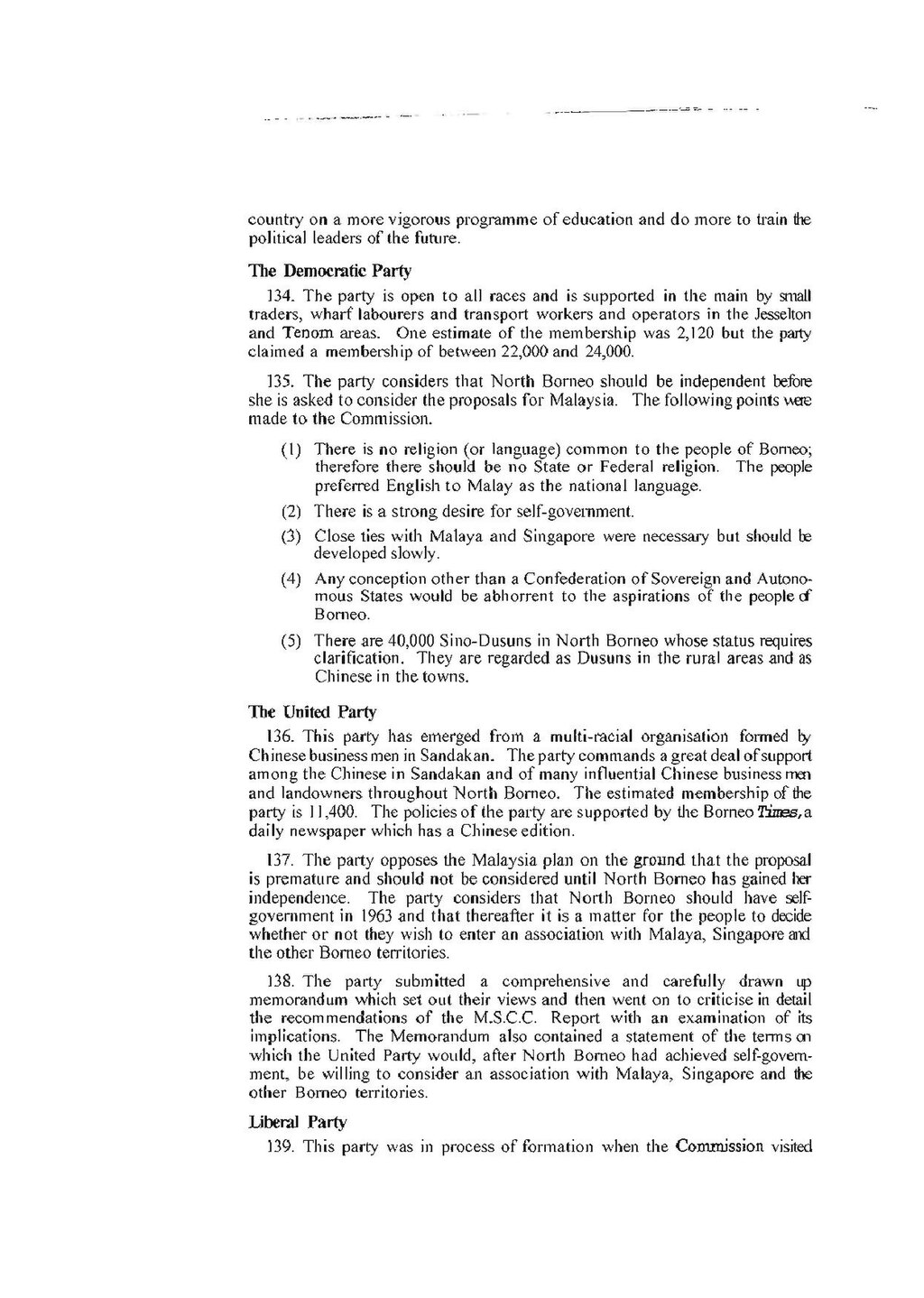country on a more vigorous programme of education and do more to train the political leaders of the future.
- The Democratic Party
134. The party is open to all races and is supported in the main by small traders, wharf labourers and transport workers and operators in the Jesselton and Tenom areas. One estimate of the membership was 2,120 but the party claimed a membership of between 22,000 and 24,000.
135. The party considers that North Borneo should be independent before she is asked to consider the proposals for Malaysia. The following points were made to the Commission.
- The United Party
136. This party has emerged from a multi-racial organisation formed by Chinese business men in Sandakan. The party commands a great deal of support among the Chinese in Sandakan and of many influential Chinese business men and landowners throughout North Borneo. The estimated membership of the party is 11,400. The policies of the party are supported by the Borneo Times, a daily newspaper which has a Chinese edition.
137. The party opposes the Malaysia plan on the ground that the proposal is premature and should not be considered until North Borneo has gained her independence. The party considers that North Borneo should have self-government in 1963 and that thereafter it is a matter for the people to decide whether or not they wish to enter an association with Malaya, Singapore and the other Borneo territories.
138. The party submitted a comprehensive and carefully drawn up memorandum which set out their views and then went on to criticise in detail the recommendations of the M.S.C.C. Report with an examination of its implications. The Memorandum also contained a statement of the terms on which the United Party would, after North Borneo had achieved self-government, be willing to consider an association with Malaya, Singapore and the other Bomeo territories.
- Liberal Party
139. This party was in process of formation when the Commission visited
